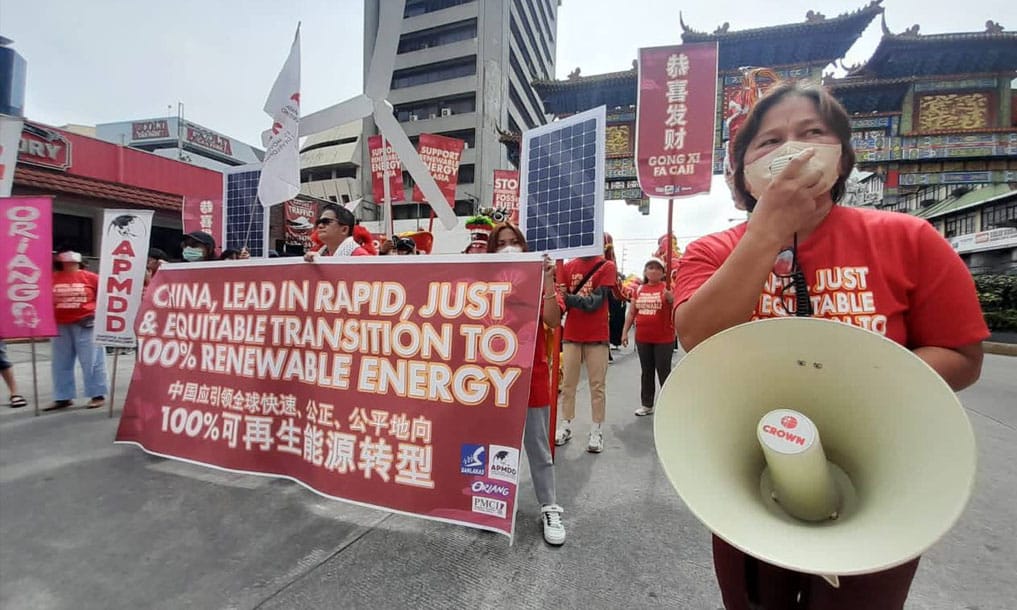IN time for the celebration of Chinese New Year, several climate advocates have called on China to stop the financing of fossil fuel projects and instead shift to renewable energy to address the climate crisis.
Asian Peoples’ Movement on Debt and Development (APMDD) coordinator Lidy Nacpil alerted China on President Xi Jinping’s two-year-old climate commitment and urged Xi to push ahead with policy changes to phase out all coal investments.
Nacpil also said China should invest more in renewable energy projects rather than backing down as the country grapples with an economic downturn and rising fuel costs.
“It is time for a total shift away from public and commercial overseas energy financing of all fossil fuels – coal, gas, and oil – and scale up sustainable, fair and non-debt creating financing for the rapid development of renewable energy systems in Asia,” Nacpil said in a statement.
2021 promise
On September 21, 2021, Xi announced at the United Nations General Assembly in New York that “China will step up support for other developing countries in developing green and low-carbon energy and will not build new coal-fired power projects abroad.”
Over 40 gigawatts of pipeline projects in 20 countries could be canceled if China halts financing in fossil fuel projects, according to reports.
Change of plans
But in October 2022, despite saying there was a need to actively participate in the global governance on climate change, Xi backpedaled on his vow and said he would not quit using fossil fuels until he is “confident” that “clean energy can reliably replace them.”
According to the climate advocates, China is on target to generate 3,000 terawatt-hours of clean energy electricity in 2022, considerably more than any other nation, and its percentage of clean energy in the country’s electrical mix has reached a record high of 31.9 percent.
Fossil fuel consumption report
But recent statistics showed that China remains dependent on fossil fuels and its consumption is as high as the level in 2020. The country’s share of coal and gas in power generation stood at 71 percent despite adding renewable resources.
“China having some of the highest solar and wind capacity in operation should lead in the technology transfer. It has the potential to make renewable energy accessible to and affordable for people and communities in Asia,” said Ian Rivera, coordinator of the Philippine Movement for Climate Justice.
Banner Photo Credit: Lani Villanueva








